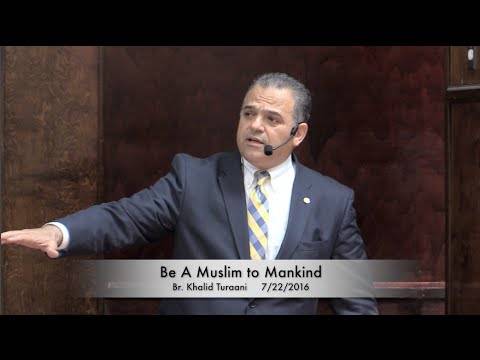 From National Justice.
From National Justice.
Michigan FBI Special Agent Jayson R. Chambers was one of three agents behind the embarrassing Gretchen Whitmer kidnapping plot, but Chambers’ (and the FBI at large) lack of respect for basic Constitutional rights are part of a broader behavioral pattern.
According to court documents obtained by National Justice, Chambers and others have been illegally denying a Palestinian-American activist his right to legally purchase a firearm.
Chambers and the FBI are being sued in federal court for targeting outspoken critic of Israel Khalid Turaani. The lawsuit was dismissed for political reasons, but Turaani has announced that he will be appealing the decision to the Supreme Court.
The case has caught the attention of 2nd Amendment advocates concerned with gun “shadow banning,” a practice where the FBI denies an eligible customer his right to a firearm just because they feel like it.
Turaani’s lawsuit explains how this works.
The FBI keeps a secret list of political dissidents, many who are not convicted or even suspected of federal crimes, called the Terrorist Screening Center Database. Being put on the list means harassment at the airport, including increased screenings of your belongings and person, or in some cases being put on the No Fly list.
Journalists and activists on the list who fly internationally are usually taken to a private room by Customs and Border Protection (CBP) to have their phones and computers imaged so that the FBI can get a peak into their political activities.
Traditionally, it is Muslims who have been subjected to this Patriot Act power, but in recent years the hyper-political FBI has been loading up the list with countless nationalists, journalists, right-wing Christians and even ordinary Trump supporters.
While the heckling at the airport is well-known, less known is the fact that when an individual submits to the FBI’s National Instant Criminal Background Check System (NICS) search to purchase a firearm, their presence on one of the FBI’s many secret watch lists will come up and often lead to a federal agent being dispatched to tell the gun store to refuse a sale, as GOP Congressional candidate Laura Loomer found out last year.
In Turaani’s case, he had no criminal record, history of mental illness or any other disqualifying issue other than a long history of advocating for the rights of the Palestinian people.
In 2017, he sought to purchase a gun from a licensed distributor in Michigan.During the NICS background check, it came up that he was on one of the FBI’s Constitutionally dubious watch lists. An FBI official contacted the seller and told him Turaani was under investigation, so the sale should not be finalized.
When he tried to buy a gun again in 2018, Special Agent Jayson Chambers personally visited the second federal firearm licensed (FFL) dealer.
The sale was delayed by Washington until Chambers menacingly entered the gun store and showed the owner out of context photos of Turaani with random Arab men. Chambers then said that he and the FBI “don’t like” Turaani and the company he keeps, without elaborating further.
The dealer was intimidated and ultimately refused to make the sale.
There is no law that says the FBI can deny an American citizen his right to bear arms because they don’t like how he looks or the political causes he advocates for. The FBI engages in this activity in secret in order to avoid public scrutiny and oversight.
The judge who dismissed Turaani’s lawsuit refused to acknowledge his fundamental rights, but claimed instead that he could have standing under the Privacy Act, as government officials are not supposed to disclose that an individual is under investigation to the public. Turaani has not been accused of any crimes. Courts have shown reluctance to challenge the FBI’s abuse of authority, even in clear cut cases like this one.
Turaani sued a second time, this time taking the judge’s advice and claiming violation of the Privacy Act. Two courts dismissed his claim, saying that the firearms vendor was technically not “coerced” by the FBI. The 6th District Court held that the FBI was only making a suggestion and that the gun dealer could’ve gone ahead and made the sale if he wanted to.
Finally, Turaani hopes to find relief at the Supreme Court, but they may elect to refuse to hear his case. The Supreme Court now has the power to curtail or affirm the FBI’s role in disclosing thinly veiled “warnings” to private parties offering First and Second Amendment services to compel them to refuse sale to individuals they do not like. It is known that this practice does not just apply to firearms, but also banking services, which they work with to deplatform and harass dissidents so as to make it impossible for them to operate.









